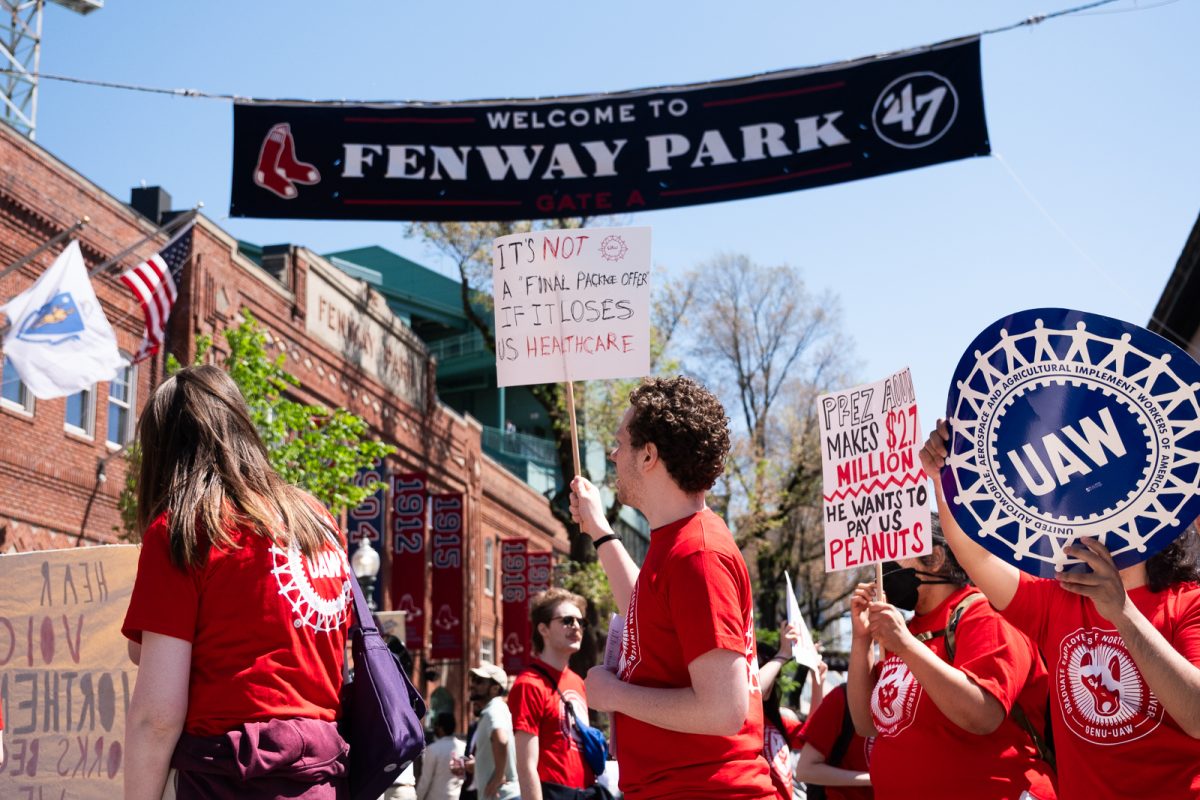For students seeking a more constructive way to spend spring break, the Northeastern Center of Community Service offers the opportunity to do volunteer work through its Alternative Spring Break program.
“This is a great opportunity to see another city, another country, another culture and also to bond as a strong group,” said Zandra Kambysellis, assistant director and program coordinator at the center.
Working in conjunction with organizations like Habitat for Humanity and STA Travel’s i-to-i program, Alternative Spring Break has had students spend the week in communities outside Massachusetts since it started in 2003. Participants help the needy through various development projects. In addition, they will learn about the problems facing the communities and how to help solve them collectively.
In previous years, only one location was chosen; however, this year’s program will send students to three destinations: Santa Ana, Calif., Vero Beach, Fla., and the Western Highlands of Honduras.
“This year is especially important, because not only is this the first time we’ve offered multiple destinations, but Honduras is our first international trip,” Kambysellis said.
In Santa Ana and Vero Beach, where Habitat for Humanity works regularly, students will help build affordable housing and repair homes in underprivileged communities.
The group traveling to Honduras will stay with local families in the Western Highlands while they work with i-to-i program, building and repairing houses and schools in one of the poorest parts of the country.
Although last year’s trip was canceled due to harsh weather, this year the Center of Community Service is preparing for what will be the biggest Alternative Spring Break effort to date.
In 2004, students were sent to Paterson, N.J. Led by Simonelli, they worked on Habitat for Humanity homes, installing floorboards and cleaning and leveling backyards.
During the program’s inaugural session the year prior, Kristen Simonelli, currently the associate director at the Center of Community Service, brought students to Coatesville, Penn., where they installed insulation and siding for Habitat for Humanity and dug ditches in the neighborhood.
Previous trips, although smaller than what is planned for 2006, have proven successful and participants have returned with new knowledge and a sense of accomplishment.
“One of the most rewarding things for us was seeing how appreciative people were for the work we did,” Simonelli said. “We’d look up from our work and there were children smiling because they were finally going to have a backyard to play in.”
This year, each group will be assigned two student leaders who will play a large role in the planning process – which Kambysellis said is a reflection of Northeastern’s experiential education program.
“This is a student-led trip, not just in name, but in spirit,” she said. “Northeastern is all about stressing practice-oriented education [and] this trip is no different. People do this for their own enjoyment, but also to learn.”
In addition to being student-led, the trips are also student-funded. Working independently and in groups, students partake in fundraising activities from early winter until the final week before departure.
From auctions to benefit shows at afterHOURS to door-to-door pizza sales, “students are motivated to raise as much money as they can, because whatever they don’t raise they have to pay out of pocket,” said Lisa Paquette, a middler sociology major who is on co-op at the Center of Community Service.
Students applying to participate in Alternative Spring Break are willing to commit the necessary time and effort for numerous reasons, according to the Center of Community Service’s Web site. Some are looking to gain an appreciation for the things they take for granted by working in less fortunate communities; others want to develop their communication skills by being part of a team.
Bethany O’Meara, a freshman marketing major who plans to work in Santa Ana, has worked with Habitat for Humanity in the past and is familiar with the benefits of volunteering.
“I feel like I connect with the community when I do this type of work,” she said. “I’m sort of shy, but I can easily open up to the people I work with daily.”
For sophomore Joe Schneider, an industrial and mechanical engineering major who started Northeastern’s chapter of Habitat for Humanity and was involved with Alternative Spring Break last year, volunteering is the best way to support people in need.
“I took part in the Alternative Spring Break because I wanted to spend time helping people hands-on instead of donating to a nondescript person or organization,” he said.
Schneider said he acknowledges this type of recreation is not one that every student would wish to participate in.
“Volunteer work isn’t for everyone,” he said. “But Alternative Spring Break is a chance for students to see how much more fun it is to work with people face-to-face than it is to just write a check.”









